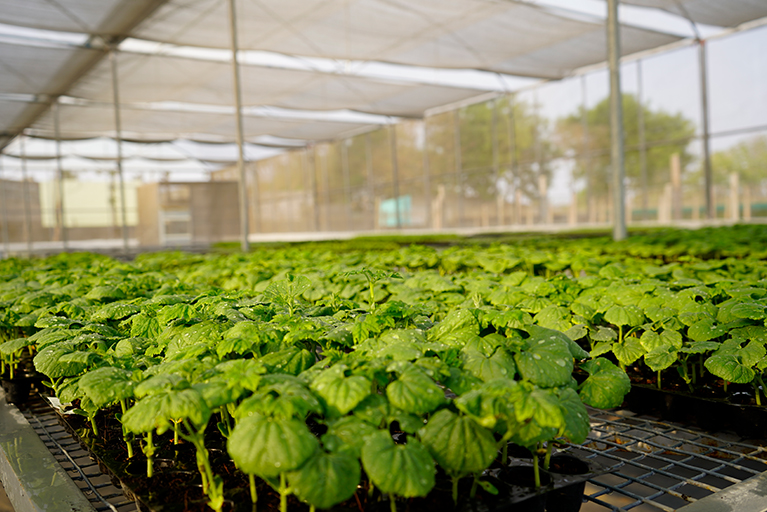In the dynamic world of agriculture, seeds form the cornerstone of crop production and food security. Among the various types of seeds used by farmers, OPV seeds (Open-Pollinated Seed) have garnered significant attention for their unique advantages. These seeds represent a traditional yet vital category in farming, especially for smallholder farmers and those interested in sustainable agricultural practices. Understanding what OPV seeds are, their benefits, and their role in modern farming is crucial for farmers, breeders, and policymakers alike.
What Are OPV Seeds (Open-Pollinated Seed)?
OPV seeds (Open-Pollinated Seed) are seeds produced through natural pollination methods such as wind, insects, or self-pollination without controlled hybridization. Unlike hybrid seeds that are the result of deliberate cross-breeding between two different parent lines to produce offspring with specific traits, OPV seeds maintain genetic diversity and stability through open pollination.
This means that farmers who save and replant OPV seeds can expect their crops to produce similar plants to the parent generation, maintaining consistency across seasons. OPV seeds have been the backbone of traditional agriculture for centuries, providing a wide range of crops with diverse characteristics adapted to local environments.
Advantages of OPV Seeds
OPV seeds offer several key advantages, making them a preferred choice in various agricultural settings:
- Seed Saving and Cost-Effectiveness: Farmers can save seeds from their harvest to plant in the next season without losing genetic integrity. This reduces dependency on buying new seeds each year, lowering costs.
- Genetic Diversity and Adaptability: OPV seeds maintain greater genetic variability, which can increase resilience to pests, diseases, and changing climatic conditions.
- Local Adaptation: These seeds often evolve naturally to suit local soils, weather patterns, and farming practices, resulting in stable yields over time.
- Sustainability: Because OPV seeds can be replanted year after year, they support sustainable farming and seed sovereignty by reducing the need for external inputs.
- Suitability for Smallholder Farmers: Many small-scale farmers prefer OPV seeds due to affordability, adaptability, and the ability to save seeds, which aligns well with their farming systems.
OPV Seeds vs. Hybrid Seeds
While OPV seeds have numerous benefits, they differ from hybrid seeds in several ways:
- Yield Potential: Hybrid seeds often provide higher yields due to hybrid vigor but require farmers to purchase new seeds each season because saved seeds may not retain the hybrid traits.
- Genetic Uniformity: Hybrids produce uniform plants, which is advantageous for large-scale commercial farming, whereas OPV crops may exhibit more variation.
- Cost: OPV seeds are more economical for farmers, especially those in resource-poor areas.
Farmers choose between OPV seeds and hybrid seeds based on their farming goals, resources, and market demands.
Common Crops Grown Using OPV Seeds
Many staple crops around the world are traditionally grown from OPV seeds. Some examples include:
- Maize (Corn): Open-pollinated maize varieties are popular among smallholders due to seed-saving potential.
- Beans: Common beans have numerous local OPV varieties suited to diverse environments.
- Sorghum and Millet: These drought-tolerant grains often rely on OPV seeds in arid and semi-arid regions.
- Vegetables: Many heirloom vegetable varieties are OPV, treasured for their unique flavors and adaptation.
Challenges and Limitations of OPV Seeds
Despite their benefits, OPV seeds face challenges:
- Lower Yield Compared to Hybrids: On average, OPV varieties may yield less than hybrids, which can be a limitation for farmers targeting maximum production.
- Genetic Drift: Without careful seed selection, OPV varieties may lose desirable traits over time.
- Market Preference: In some commercial markets, uniformity and specific traits of hybrid seeds are preferred, limiting OPV seed adoption.
- Seed Quality Control: Ensuring the purity and viability of OPV seeds requires proper seed management and storage.
Innovations and Research in OPV Seeds
Seed scientists and agricultural researchers continue to work on improving OPV seeds by integrating modern breeding techniques. These efforts focus on enhancing yield potential, disease resistance, and nutritional quality while preserving the advantages of genetic diversity and seed-saving ability.
Participatory breeding programs involving farmers have been particularly successful, as they combine scientific knowledge with local expertise to develop OPV seeds that meet community needs.
The Role of OPV Seeds in Food Security and Sustainable Agriculture
In regions where farmers cannot afford hybrid seeds or lack access to them, OPV seeds (Open-Pollinated Seed) provide a reliable alternative for food production. They play a crucial role in maintaining agricultural biodiversity and seed sovereignty, empowering farmers to manage their own seed supply.
OPV seeds support sustainable farming systems by reducing dependence on external inputs, lowering costs, and encouraging ecological balance through diverse cropping. This aligns well with global goals to promote resilient agricultural practices amid climate change and resource constraints.
How Farmers Can Benefit from OPV Seeds
Farmers interested in using OPV seeds should consider the following best practices:
- Seed Selection: Save seeds from healthy, high-yielding plants to maintain quality.
- Seed Storage: Store seeds in cool, dry conditions to preserve viability.
- Crop Rotation: Use crop rotation to manage pests and maintain soil health.
- Community Seed Banks: Participate in or establish seed banks to share and preserve local OPV seed varieties.
Conclusion
OPV seeds (Open-Pollinated Seed) remain an essential component of global agriculture, especially for smallholder farmers and sustainable farming advocates. Their ability to be saved and replanted, genetic diversity, and local adaptability make them invaluable for ensuring food security and preserving biodiversity.
While hybrid seeds dominate commercial agriculture due to their high yield potential, OPV seeds offer resilience, sustainability, and farmer empowerment. Supporting research and extension services to improve and promote OPV seeds will help create a balanced agricultural system that benefits farmers, consumers, and the environment.






Comments